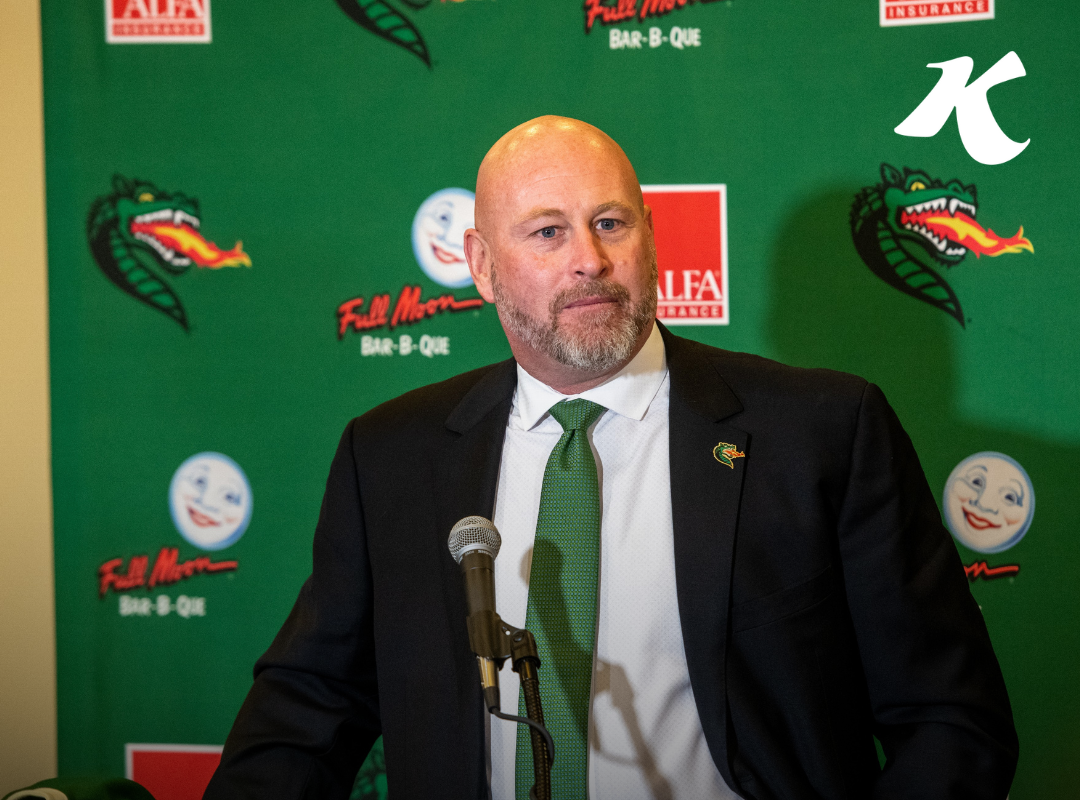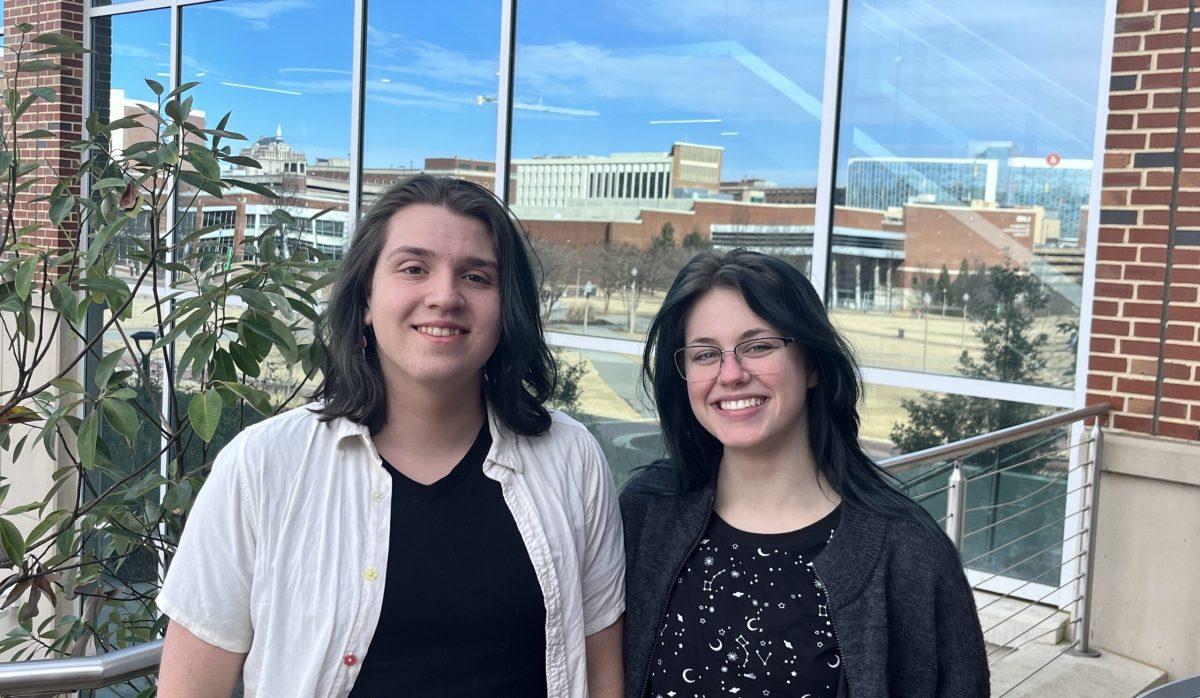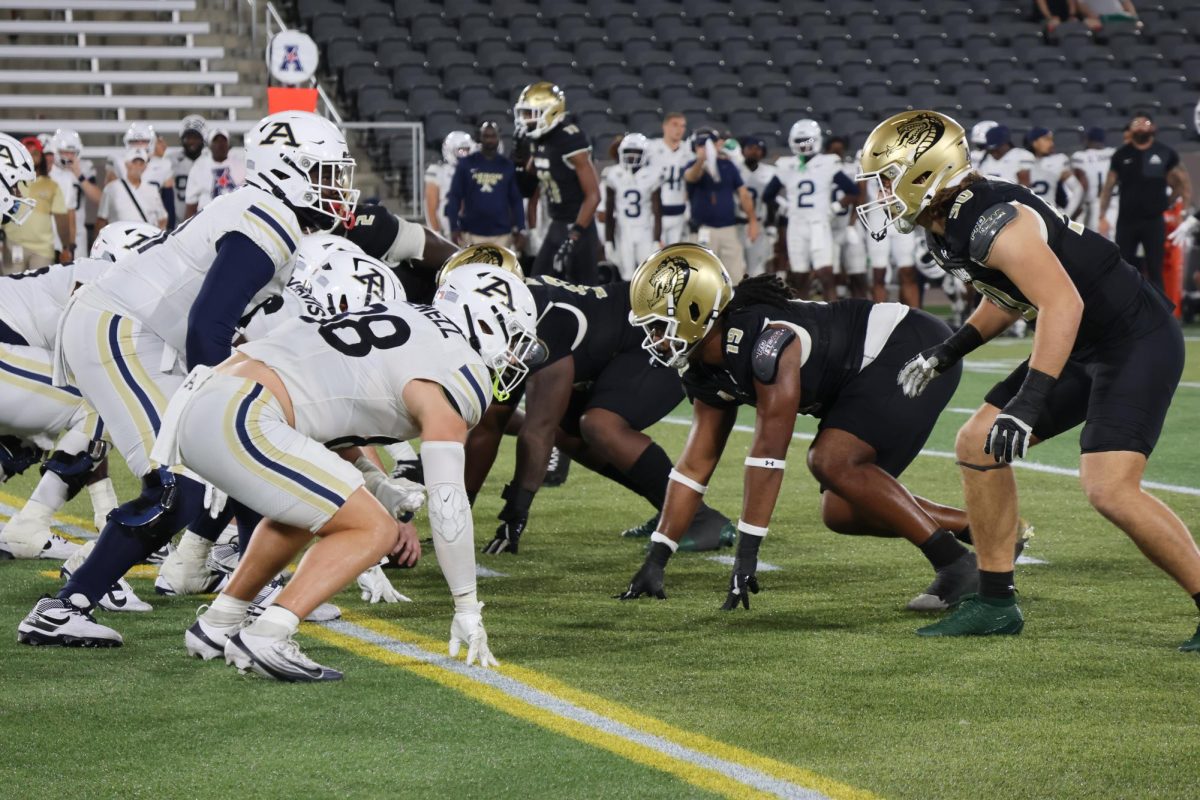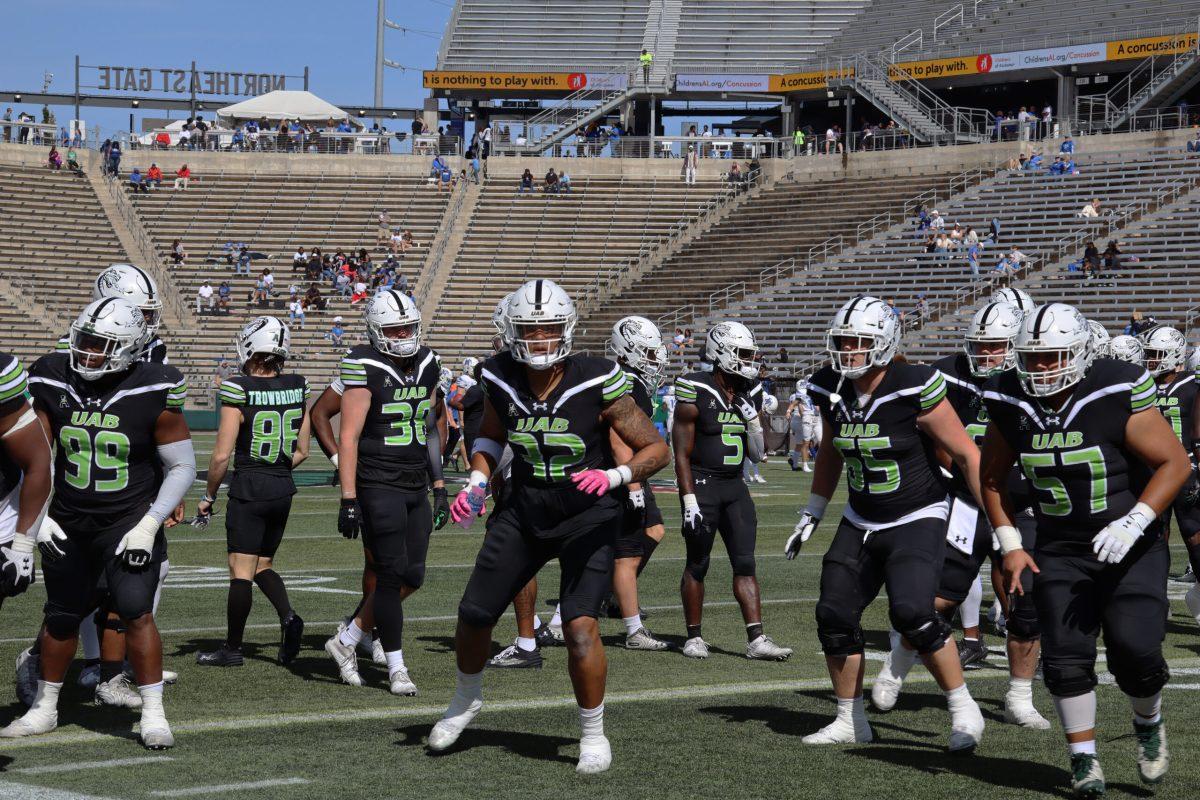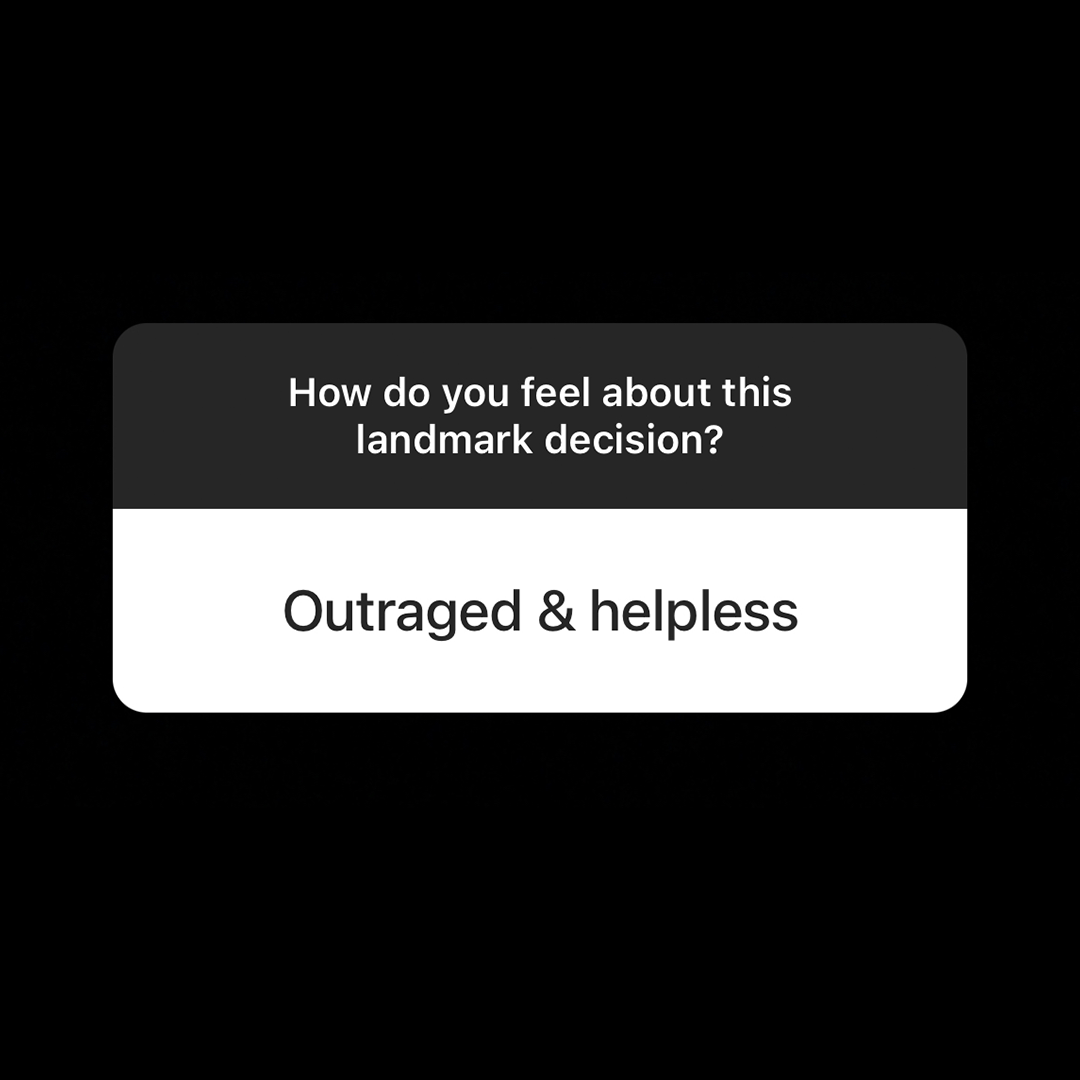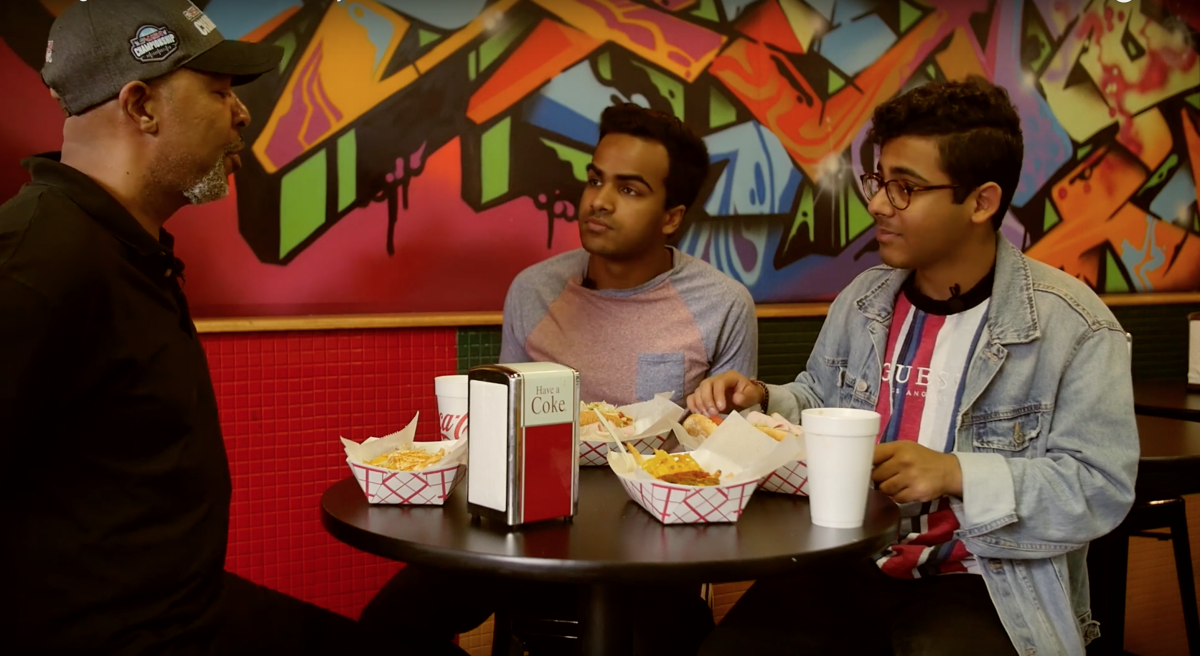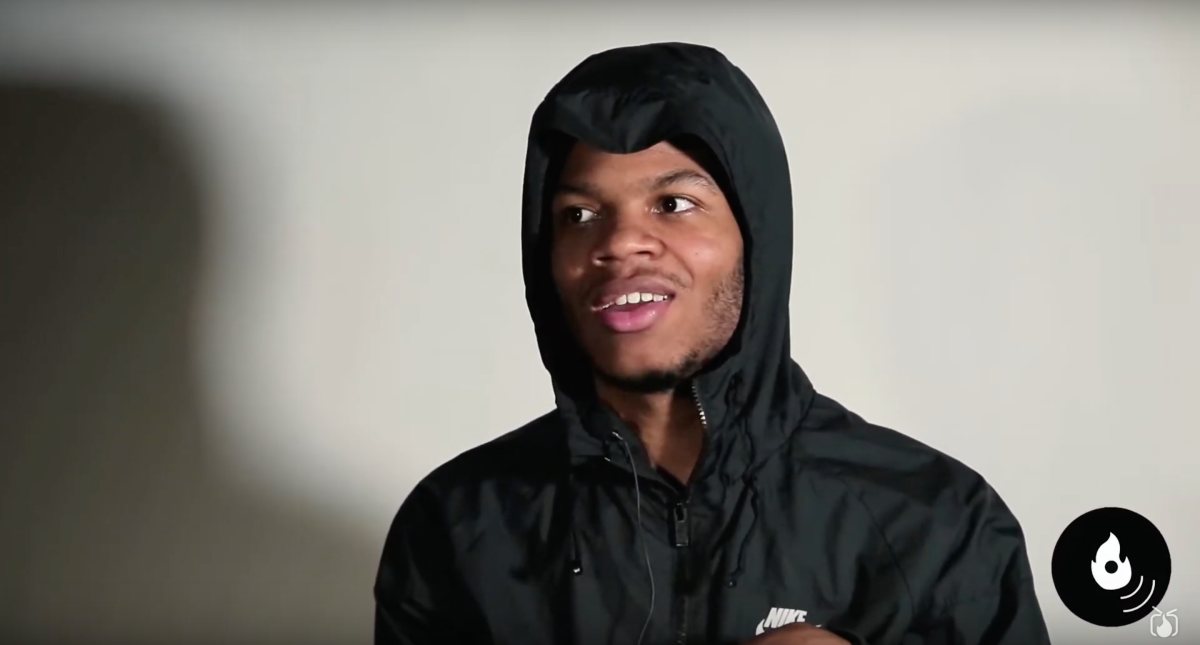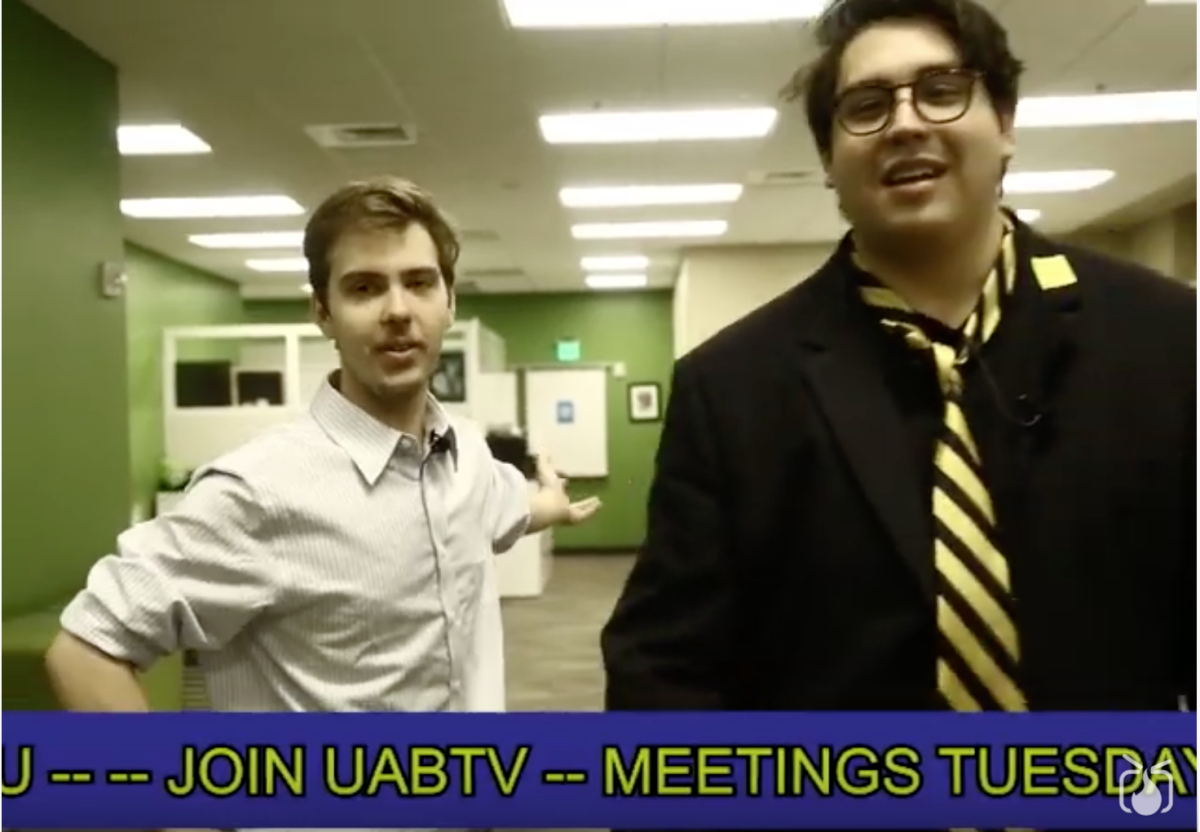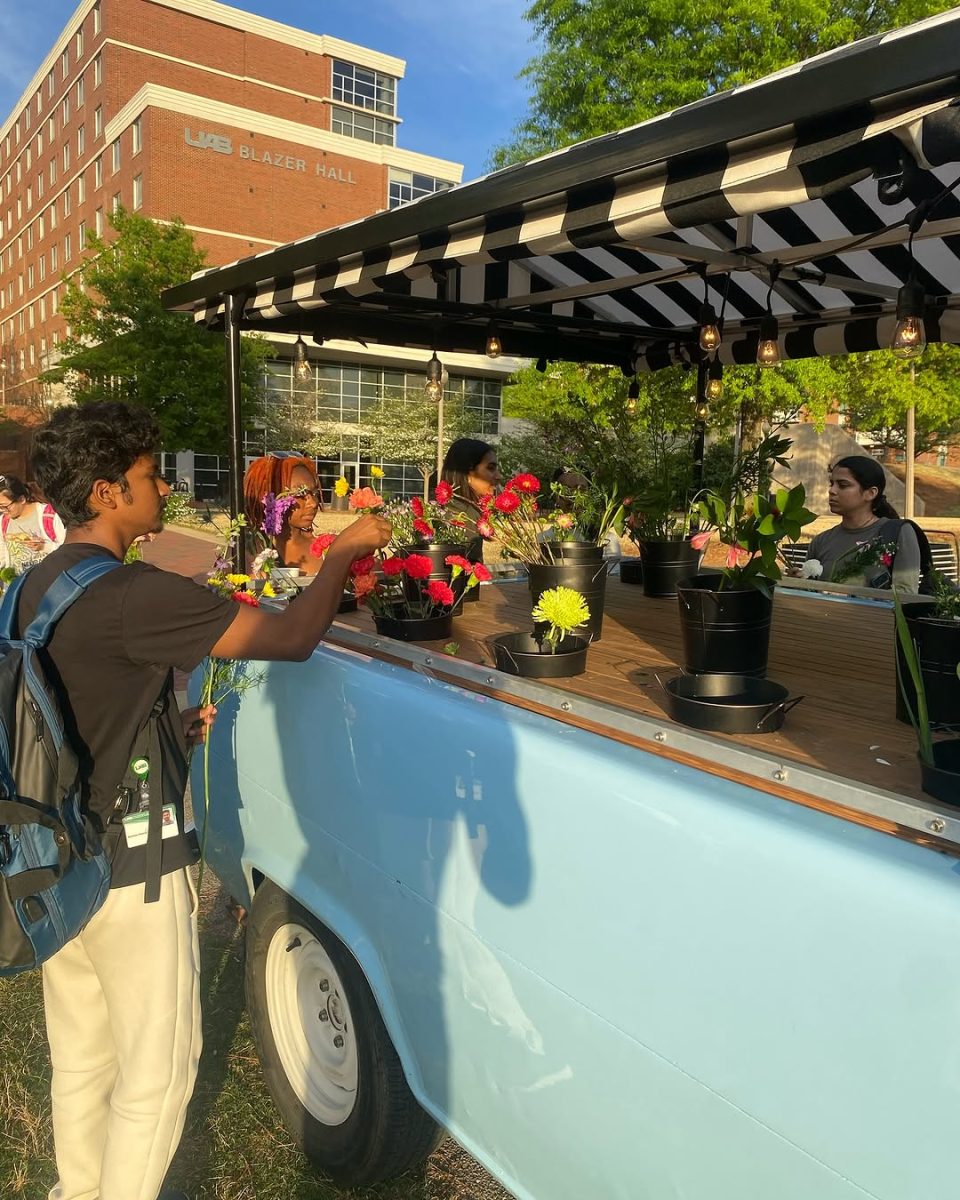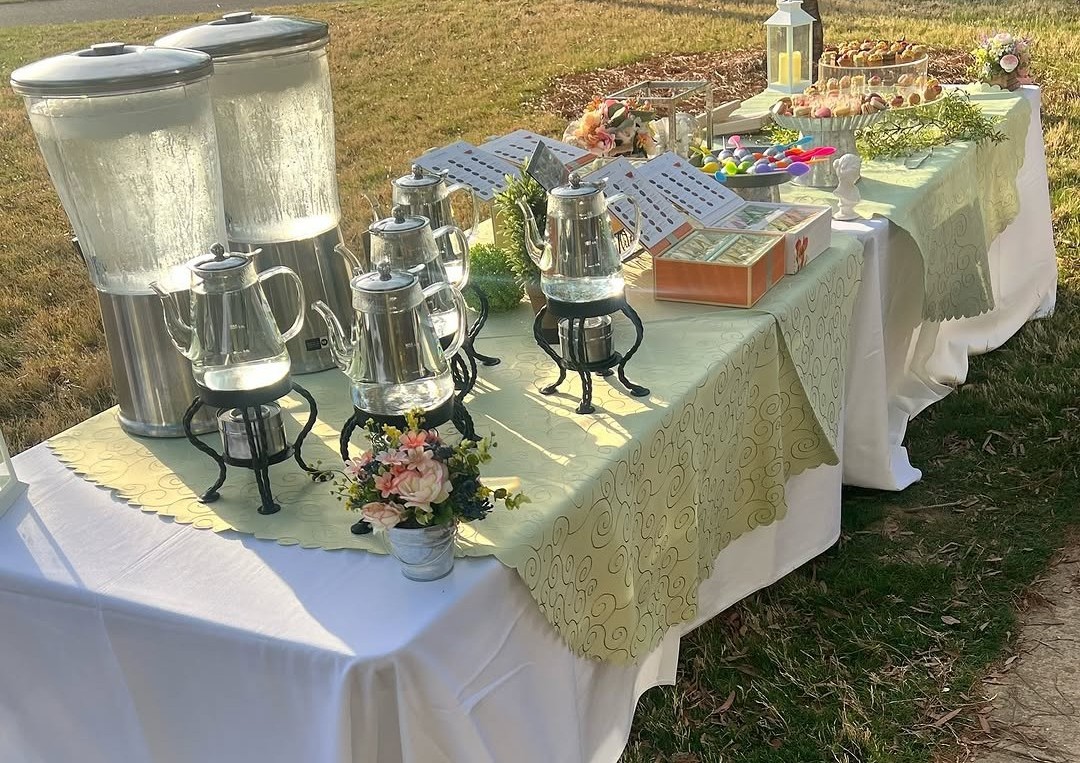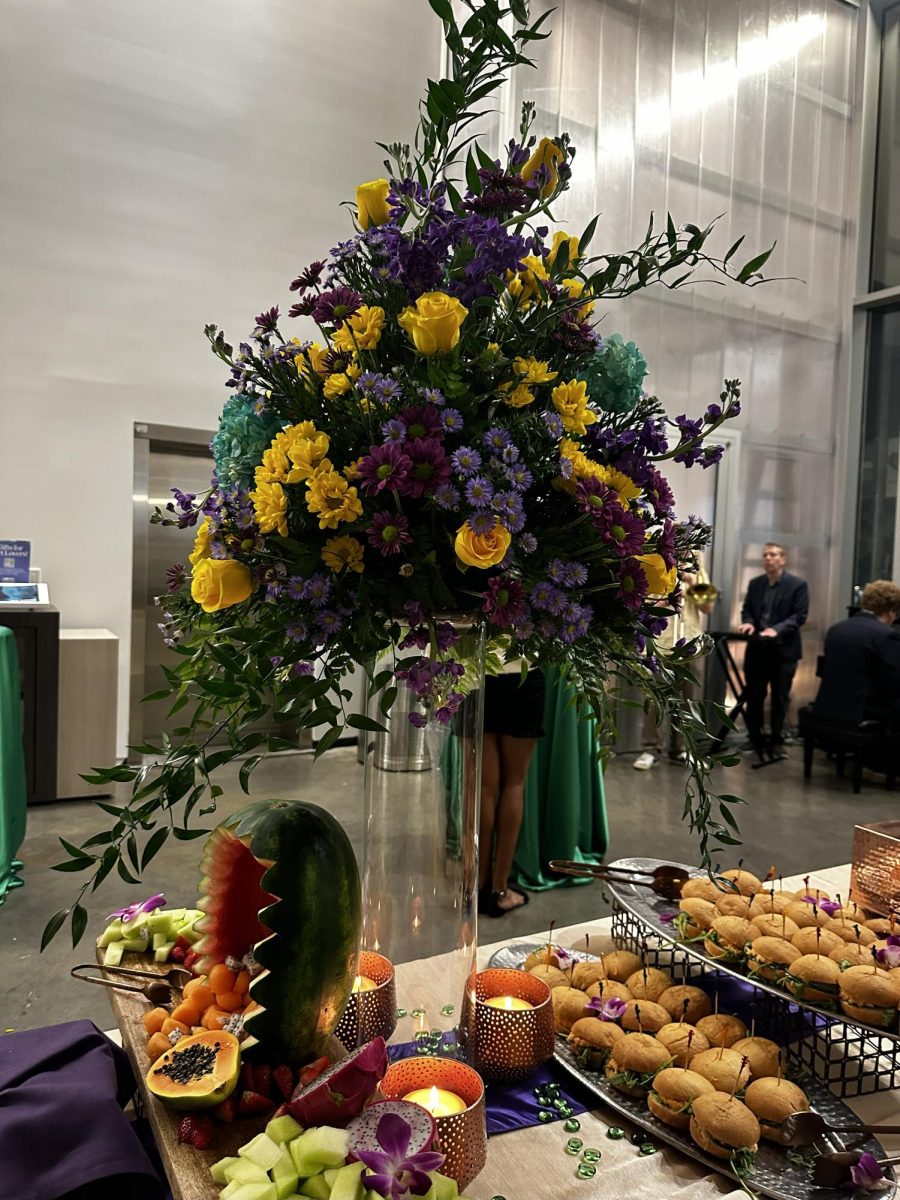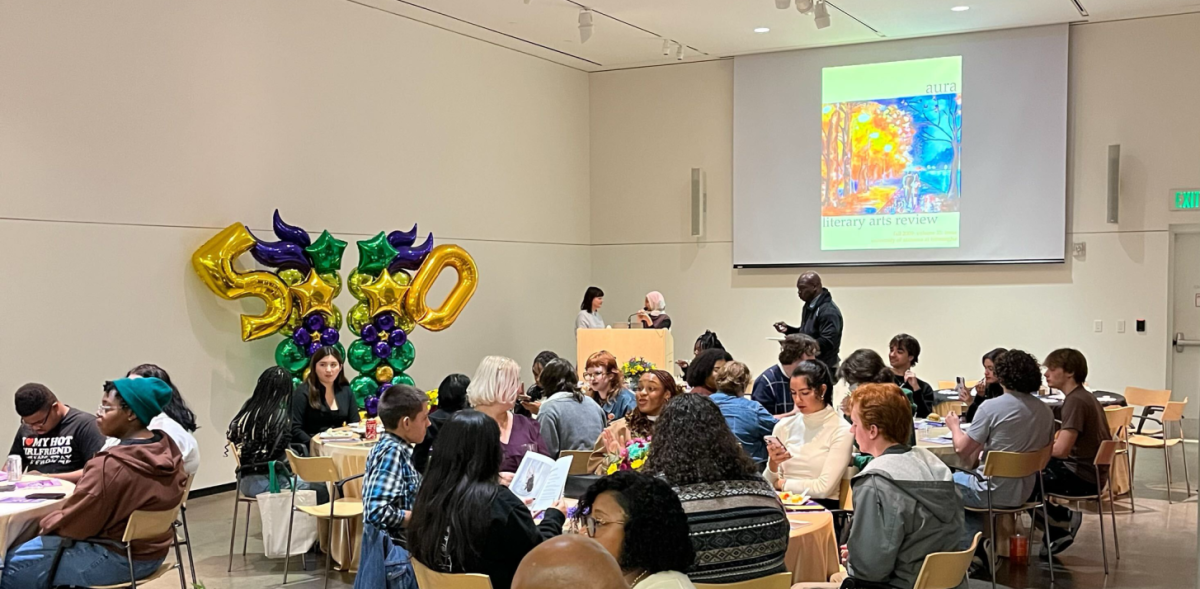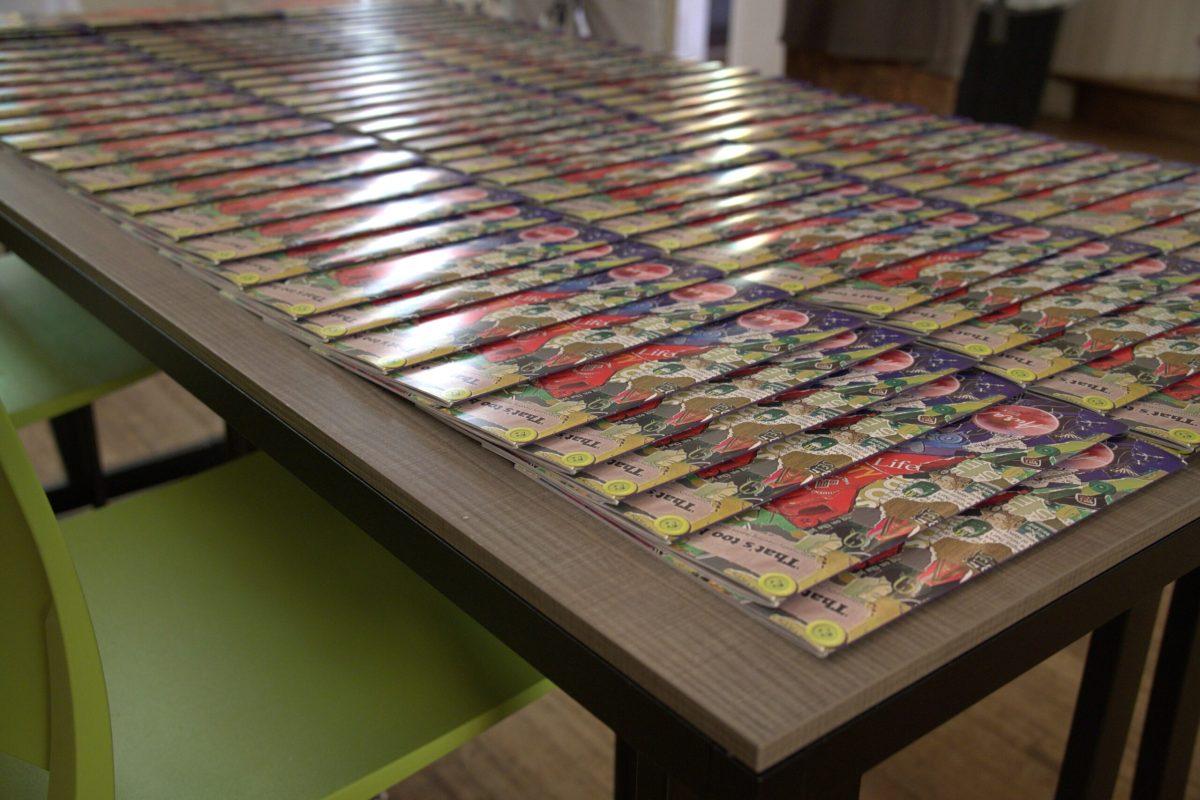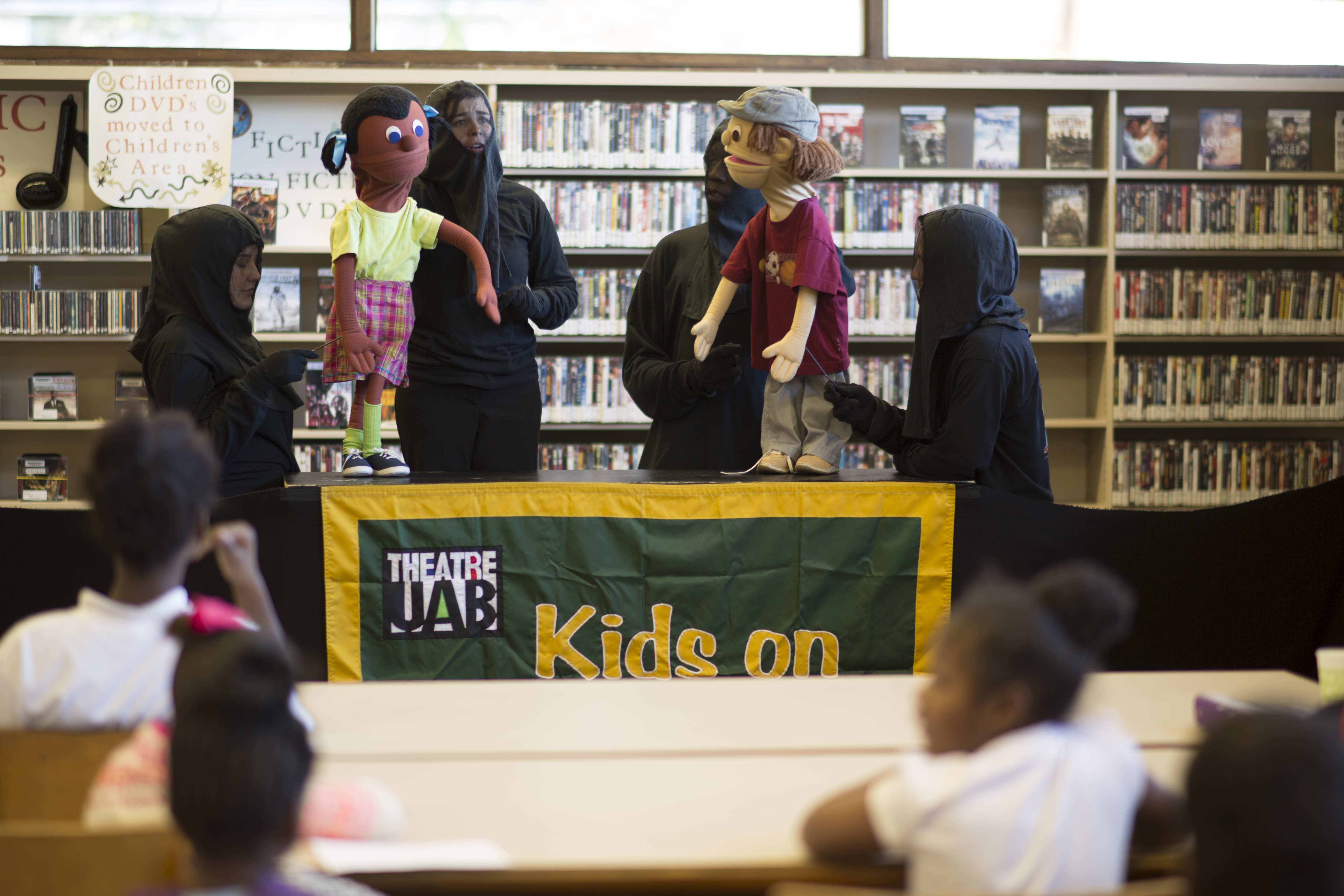
Theatre UAB presents to a group of students of all ages. (Photo by. Stephanie Lockhart).
April Oberman – Staff Writer
[email protected]
On Friday, Nov. 13 at the Wylam Branch Library, kids of all ages from elementary to high school shuffled in to watch the Bunraku-style puppet show “Kids on the Block.” KOTB is an international franchise with a mission of presenting positive messages and principal information about difficult topics.
This style of performance involves the puppeteers standing next to the puppets while dressed in all black and wearing a mask.
The show’s goal was to teach kids the awareness of bullying and what to do if they’re in a situation when they or someone they know is being bullied. Once the show was over, the UAB students asked the children questions about what they learned about bullying.
A person of any age can be subject to bullying. Usually, bullying occurs with students aged elementary through high school. However, bullying can occur at the college level.
UAB’s Theatre Department puts on KOTB at elementary schools in hope of stopping bullying where it begins.
“We have only to look at the recent events at the University of Missouri to see that bullying at college is a real and persistent problem. Now, there is a pushback from critics saying that the bullying and intimidation at Mizzou was grossly exaggerated, which is being interpreted by many people as an opinion that nobody has ever been bullied or threatened simply because of their race and religion. Or if they have, that it’s somehow acceptable, a ‘part of growing up,’” said Lee Shackleford, an assistant professor of theatre and the director of KOTB for nearly 20 years.
“I’d like to think that the next time any of the kids in our audience gets into a situation like those in the show, they will now respond appropriately. It is frustrating that there’s really no way for us to know what effect we have on our audience,” Shackleford said. “So, the third-graders for whom we perform may not be able to act on our advice until they’re in the fifth or sixth grade. Which means that even if our work doesn’t show an immediate effect, we have ‘planted the seed.’”
“KOTB started out in the 1970s with the mission of helping the average school child better understand kids with disabilities,” Shackleford said. “Now, the franchise has expanded to include a wide range of scripts and characters, with shows addressing topics that include coping with ADHD, what it is like to spend a night in the hospital and even dealing with a death in the family.”
Shackleford relates to KOTB’s message. When he was a child, Shackleford was bullied because he was “different” from everyone else.
“I think about this a lot as we teach younger kids about this problem. My problem was that I didn’t understand my rights as a human being. My culture told me I was asking for a beating so it was, in a sense, okay when I got one,” Shakleford said.
“Anyone in authority— faculty, chairs, deans, Resident Assistants, Campus Police, the President, whoever—must respond immediately to reports of bullying or intimidation of any kind. We all have to send the clear and definite message that our highest priority as human beings living and working together on this campus is to treat one another with respect,” Shackleford said.
As one character in the KOTB show said, “if we all stick together, what are bullies going to do, pick on everybody?” Shackleford believes that all students have the right to feel safe and respected on campus.


